North American Simulation And Gaming Association Author Claims Dungeons & Dragons Promotes “Race Essentialism” Because “Humans Cannot Realistically Imagine A Completely Disconnected Reality”
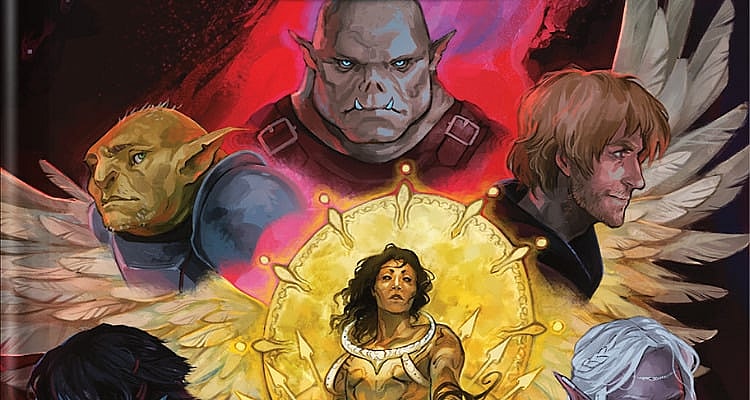
According to regular North American Simulation and Gaming Association contributing author Clayton Whittle, Dungeons & Dragons promotes the concept of “race essentialism” or “the idea that racial identity determines the path we take in life” – because players “cannot realistically imagine a completely disconnected reality” and thus are incapable of not drawing comparisons between the game’s fictional creatures and real-world races.

RELATED: Wizards of the Coast Removes Lore Deemed ‘Problematic’ From Dungeons & Dragons
Originally founded in 1962 as the East Coast War Games Council, the North American Simulation and Gaming Association (NASAGA) is a self-described “network of professionals dedicated to the design, implementation, and evaluation of games and simulations to improve learning.”

On March 12th, the organization published a piece by Whittle headlined “Confronting Racial Essentialism in Dungeons & Dragons,” wherein the Penn. State University Learning, Design, and Technology Ph.D candidate whose work “seeks to empower individual citizens, especially underrepresented populations, to act as environmental agents in their own lives by providing educational tools, engaging experiences, and a platform through which their voices can build efficacy” sought to “address how players, writers, and dungeon masters can approach and confront racial essentialism in D&D, finding ways to resist the implicit demands on character races.”
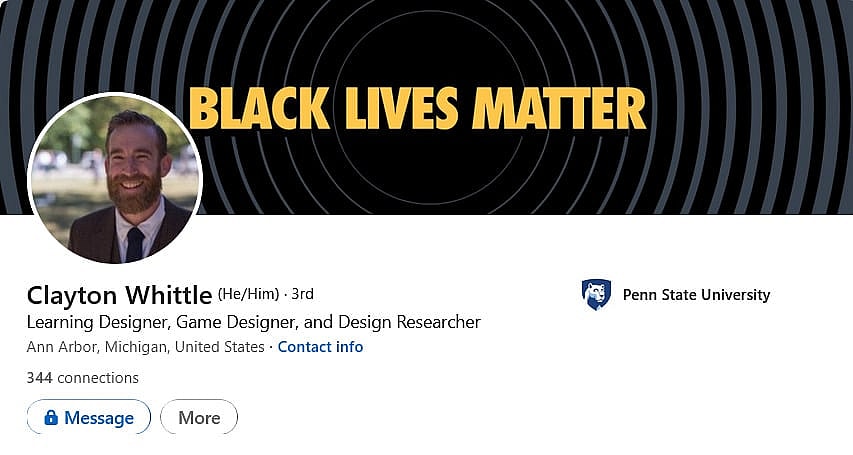
“Racial essentialism is, at its core, the idea that racial identity determines the path we take in life,” began Whittle.
“In the most egregious of real world examples, we can point to the absolutely disgusting practices of scientific racism, the pseudoscientific pursuit of empirical evidence that one ethnicity can be biologically inferior to another,” he continued.
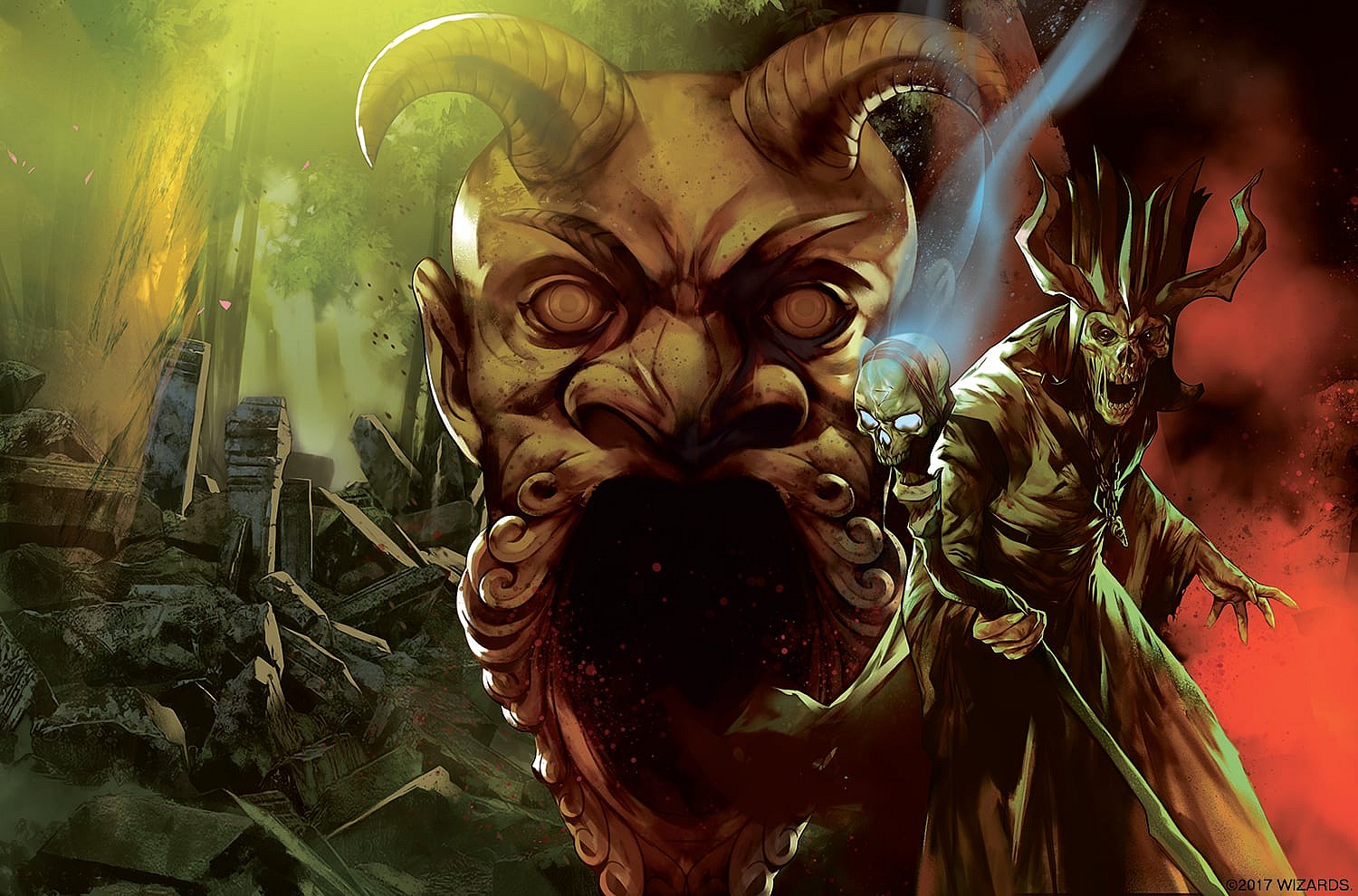
“The, I should hope, very obvious, problem with this idea is that we cannot reasonably attribute individual and experiential ability or knowledge with race,” he added. “To do so absolutely dehumanizes the individual, generalizes the experience, and is, in short, utterly not cool.”
Following this clarification, Whittle argued that the classic tabletop RPG “encourage[s] essentialism” because it “ascribes cultural traits to races” and “includes physical traits and experiential knowledge based on race.”
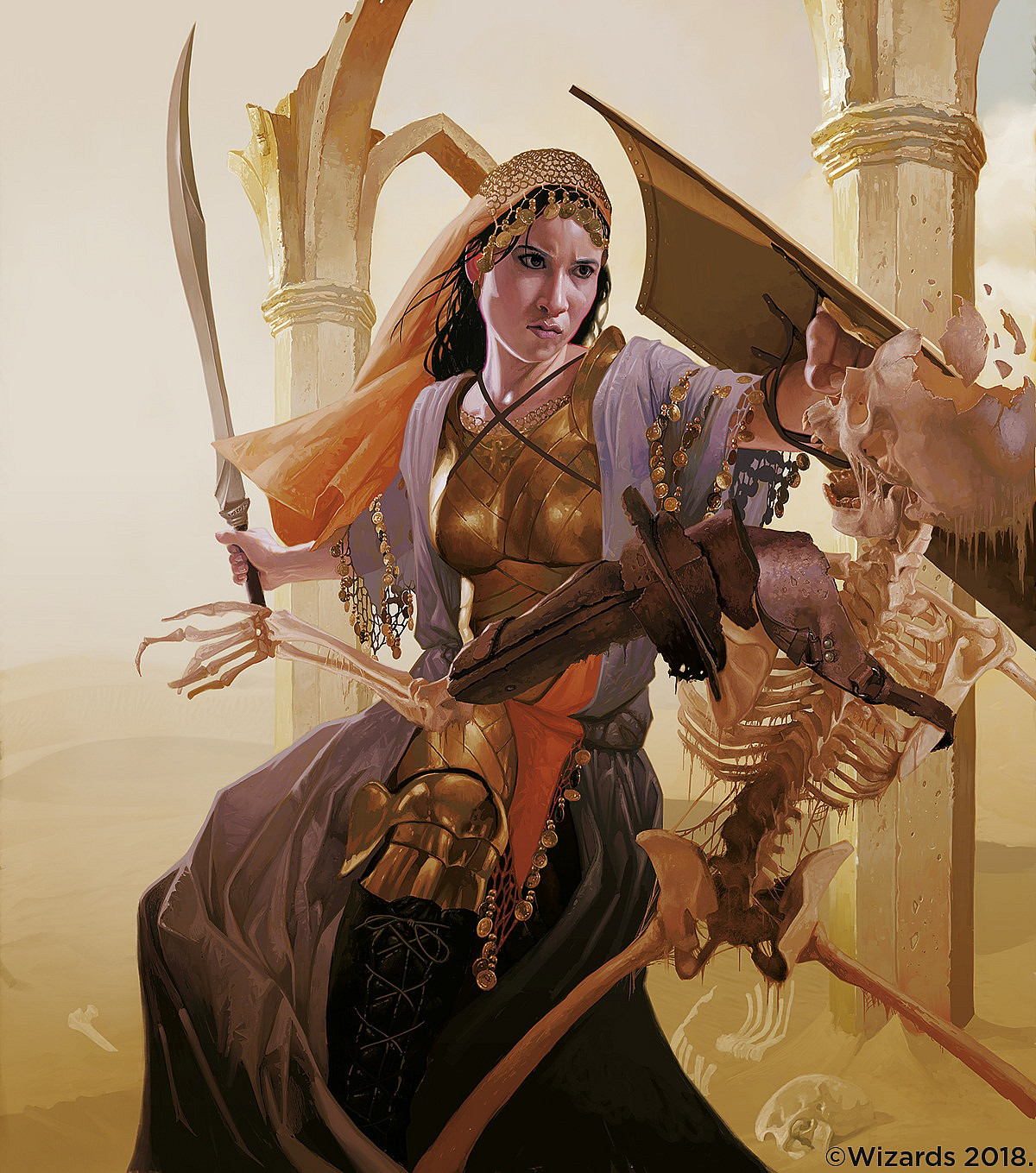
“Players must use these core resources to craft characters and, in doing so, must engage with an explicitly essentialist universe, in which your race determines everything from how far you can run to knowing how to blacksmith,” wrote the regular NASGA contributor.
“Further, within the game, D&D encourages assumptions based on racial essentialism. Certain races are “inherently evil,” and their actions always pursue goals of cruel intent. Players are trained from the start to expect evil intent from goblins, barbarism from orcs, or kindness from elves,” he asserted.
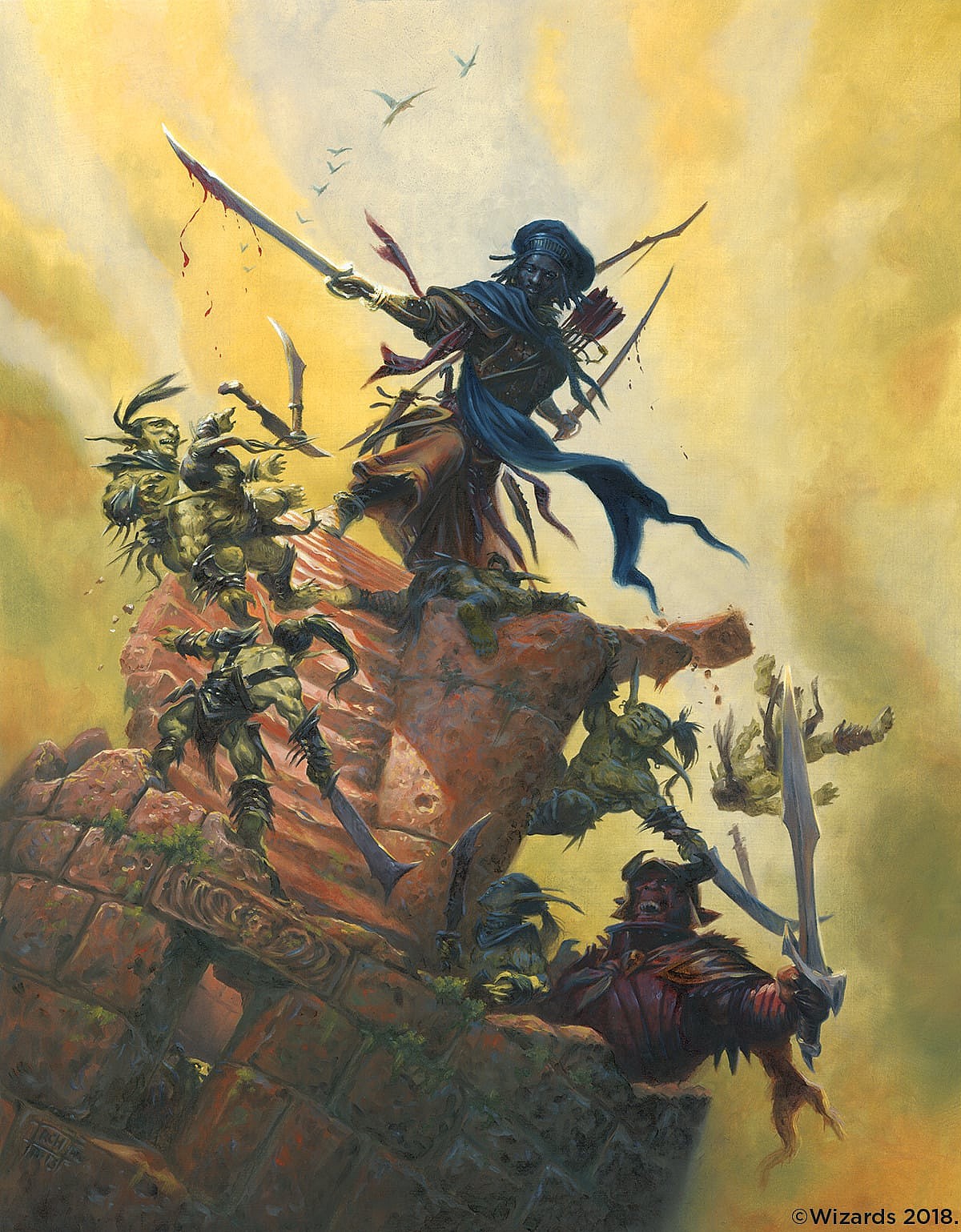
Noting that he had spoken to “the wonderful creators from the DMsGuild, an online marketplace for third party D&D content” regarding this concept, Whittle recalled that several of these creators had asserted that “the existence of a ‘second [fantasy] world’ automatically inspires players to draw connections.”
“It is the responsibility of the dungeon master (or writer) to lay out how the imagined world does or does not connect to the real world,” he continued, before implying that all players would default to making racist comparisons between the game’s races and real-world peoples without the guiding hand of a properly-socially-conscious DM. “Without that explicit guidance, players are free to imagine their own connections.”

Whittle then moved to weigh the pros and cons of “a brilliantly binary method for addressing the issue” shared with him by one of the aforementioned DMsGuild creators.
“In her mind, an imagined world either is or is not connected to the real world,” he elaborated. “This binary approach, explicitly addressed, lets players know that there either are or are not connections and sets the boundaries through which the DM wishes the players to interpret the universe.”

RELATED: Dungeons & Dragons To Introduce First Wheelchair Accessible Adventure
“The first binary approach is a full dedication to fantasy,” explained Whittle. “In this approach, the writer or dungeon master makes explicit that there is no connection to the real world. As one of the wonderful writers put it, ‘orcs is orcs’.”
“This approach represents the full fantastical escapism of a disconnected experience,” he said. “There are no allegories on which to draw and, because of this, there are no allegories that can be reasonably imagined.”
“Curiously, most writers find this to be the most difficult path to follow,” claimed Whittle. “The nature of the mind is to form connections. Even when striving to achieve this utter removal from reality, there are nearly inescapable connections, because we, as humans, cannot realistically imagine a completely disconnected reality.”

“The departures from our own reality, such as magic, may be flagrant, but they are undoubtedly the minority when compared to the overwhelming number of similarities,” he argued. “And, it is these similarities that encourage players to make connections to our own world.”
“In the end, this approach is made difficult because, as my collaborators have put it, you have to be all or nothing with this approach,” the author put forth. “To completely imagine a new world and prevent connection to real-world issues, a writer or DM needs to constantly examine the content to ensure it doesn’t perpetuate stereotypes of the real world.”
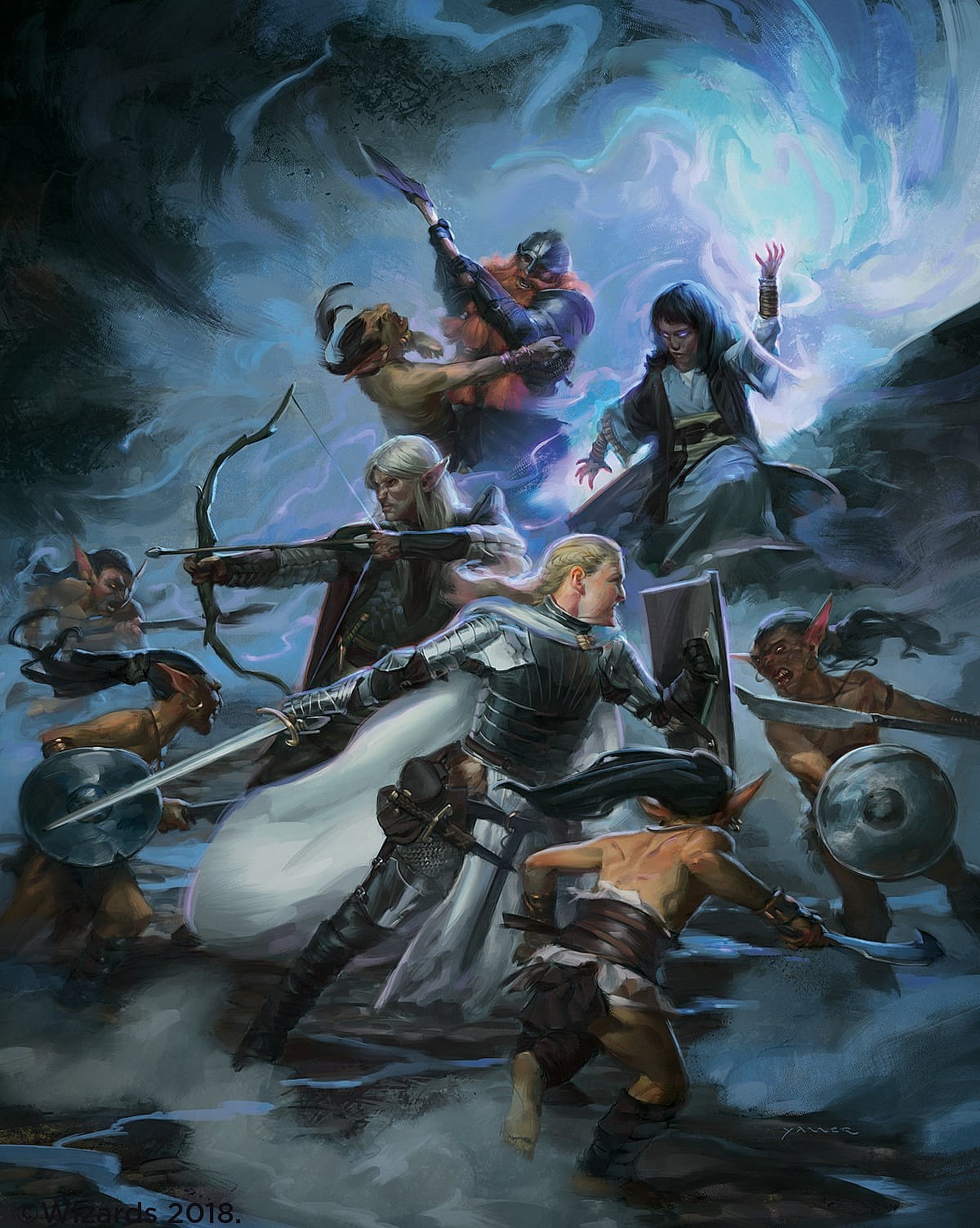
The second approach, revealed Whittle, was by “challenging the in-game stereotypes and drawing narratives that connect the in-universe challenges to real world issues.
“The writer has to consider the rippling impact of how their allegories may be interpreted,” he postulated. “But, in the end, a dungeon master or writer has control over what they do or do not include, giving them the power to narrow the narrative to a controllable level.”
This approach, he pointed out, “allows the writer to control the scope and discourage generalizability by limiting the reasons for ‘evil’ behavior to local groups, not wide-ranging racial stereotypes.”
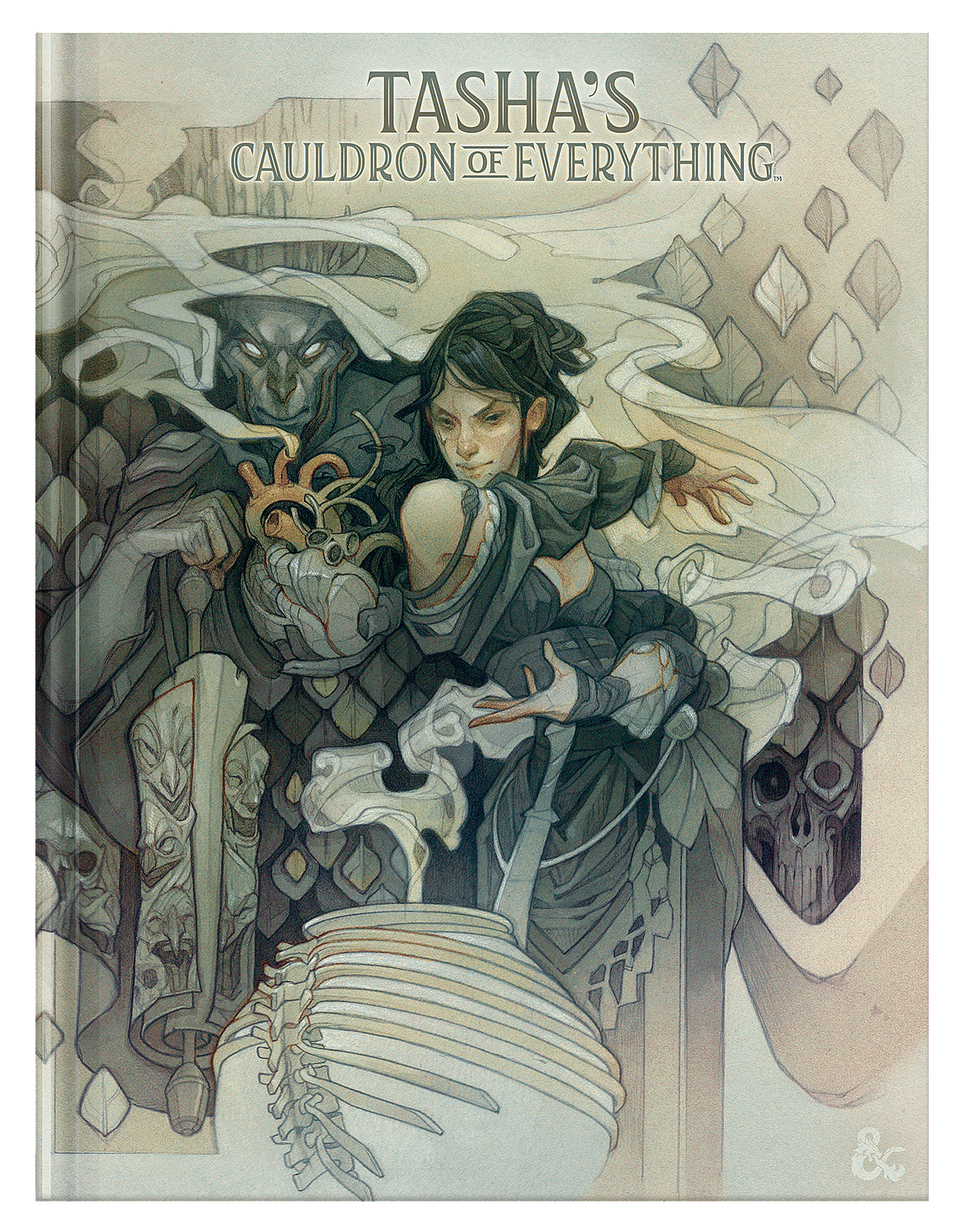
Returning to the question of “How Should I Confront Racial Essentialism In D&D Narratives?”, Whittle ultimately admitted, “at the end of the day, neither approach is superior.”
“The explicit approach of confronting racial essentialism in D&D takes substantial work, but provides the writer / DM with much more control,” he concluded. “It also allows for significant opportunity to explore these stereotypes in a productive way. On the other hand, the ‘orcs is orcs’ approach gives players the opportunity at true escapism, so long as the DM is vigilant in squelching imagined connections.”
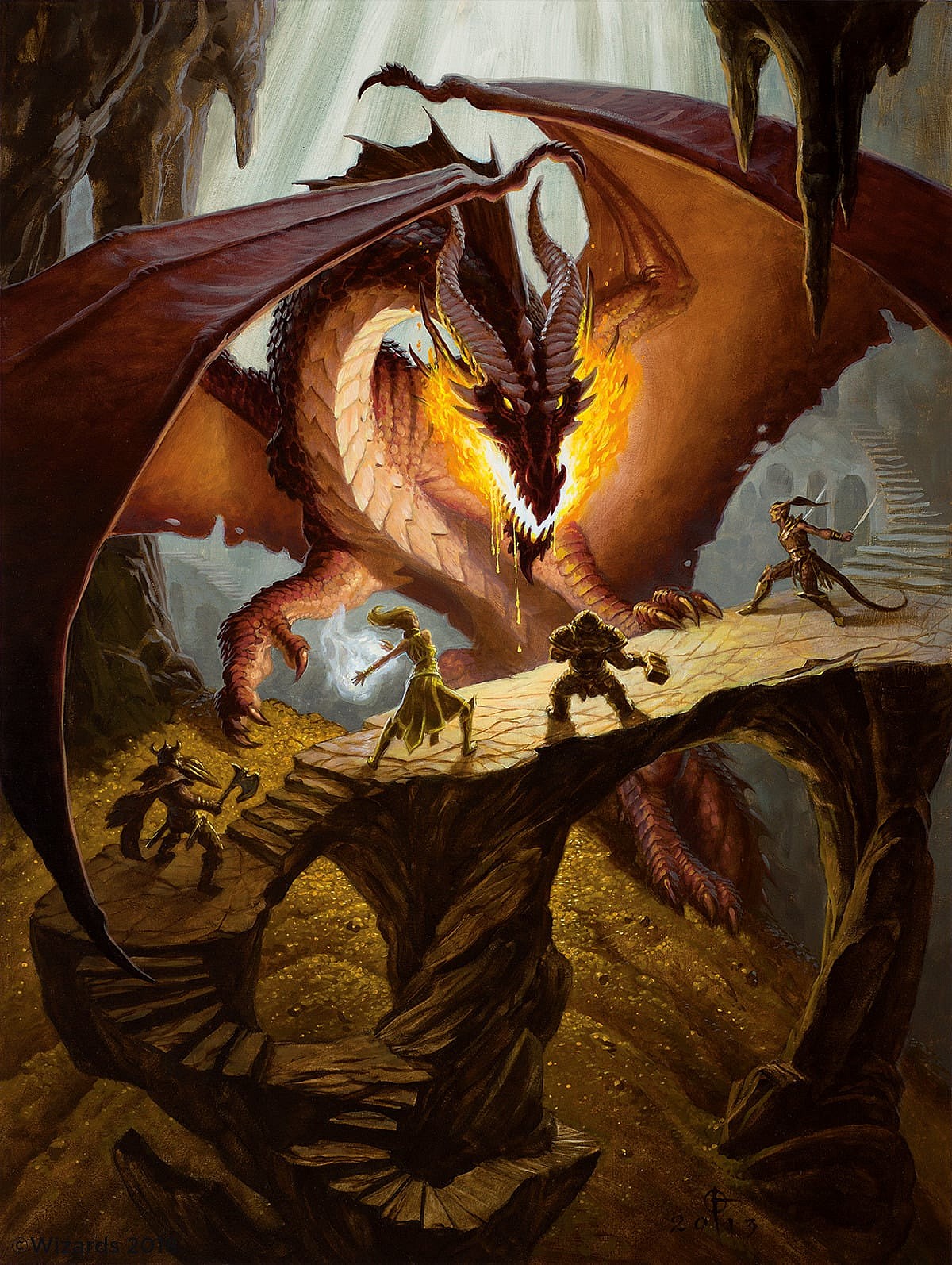
Interestingly, Stetson University Psychology Professor Christopher J. Ferguson recently published a study that claims there is “no association between D&D and racism, and most people including POC don’t find ‘evil’ orcs offensive.”
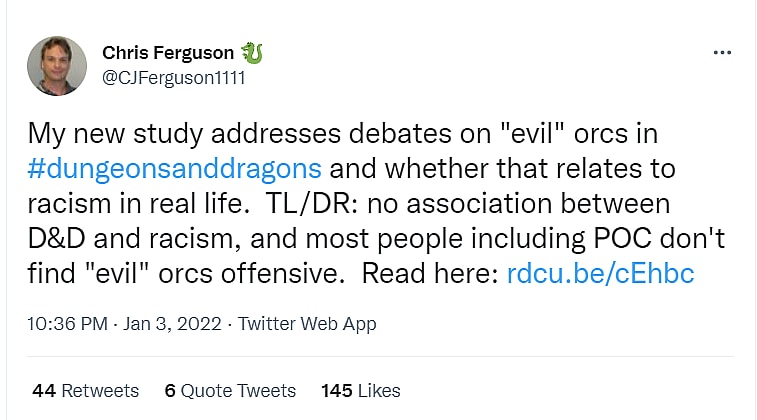
In the study, Ferguson concluded, “The D&D game was not associated with ethnocentrism in real life, nor did a consensus of individuals, including People of Color, find the depiction to be offensive or racist.”
He added, “It appears that, if we are are serious about addressing race issues in the United States and internationally, focusing on monster depictions in the D&D game may not be the most fruitful avenue.”
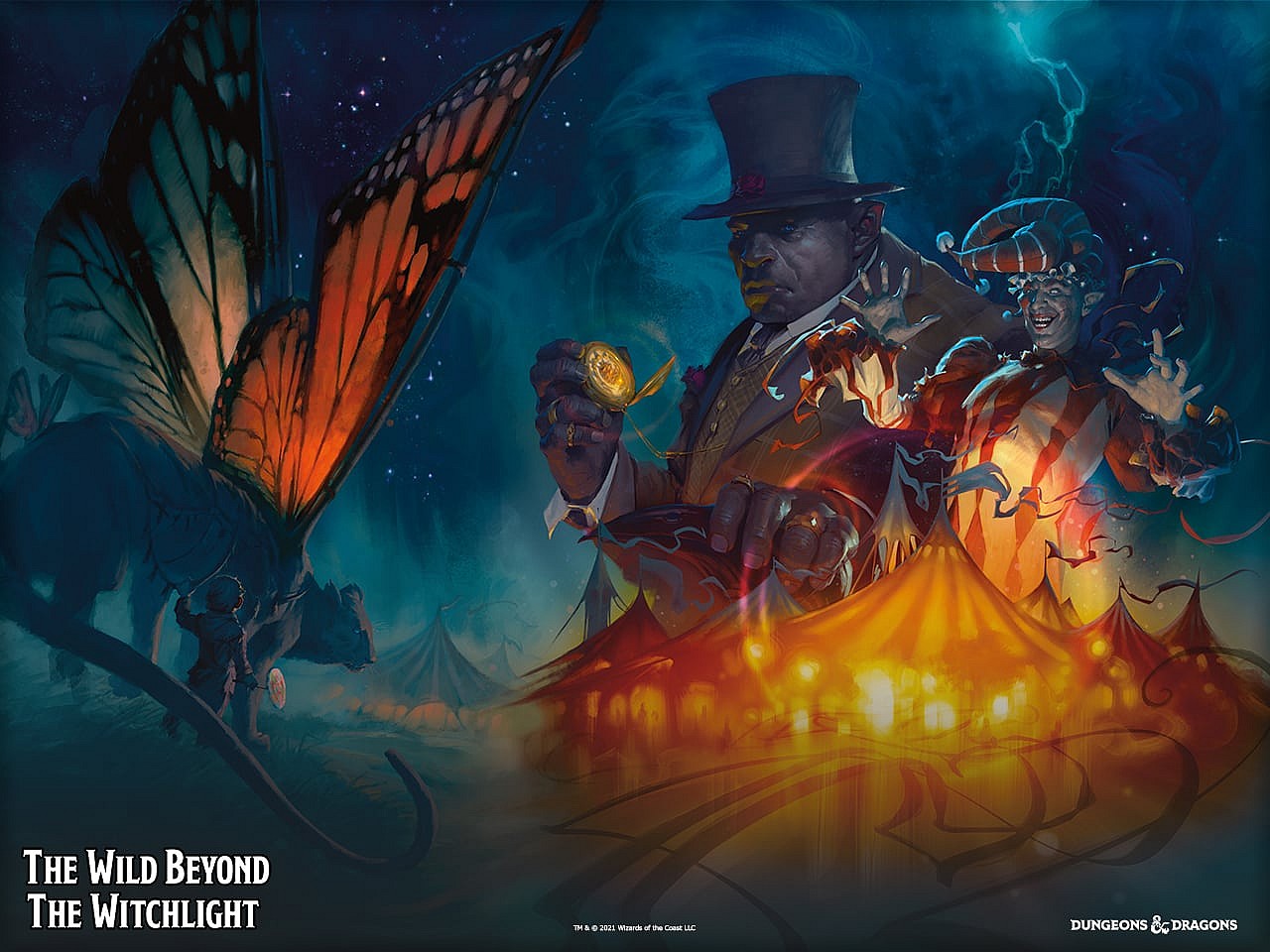
In the abstract of the study, Ferguson detailed he surveyed “308 adults (38.2% non-White) a subset of whom (17%) were players of the role-playing game Dungeons and Dragons.”
He continued, “Playing Dungeons and Dragons (D&D) was not associated with greater ethnocentrism (one facet of racism) attitudes. Only 10.2% found a depiction of orc monsters as inherently evil to be offensive. However, when later asked the blunter question of whether the same depiction was racist, the number jumped to 34.0%.”
“However, when later asked the blunter question of whether the same depiction was racist, the number jumped to 34.0%, with women particularly inclined to endorse this position,” he further detailed.
He then explained, “This suggests asking people about racism may prime them to see racism in material they hadn’t previously found to be offensive. Neither participant race nor history playing the D&D game was associated with perceptions of offensiveness or racism.”
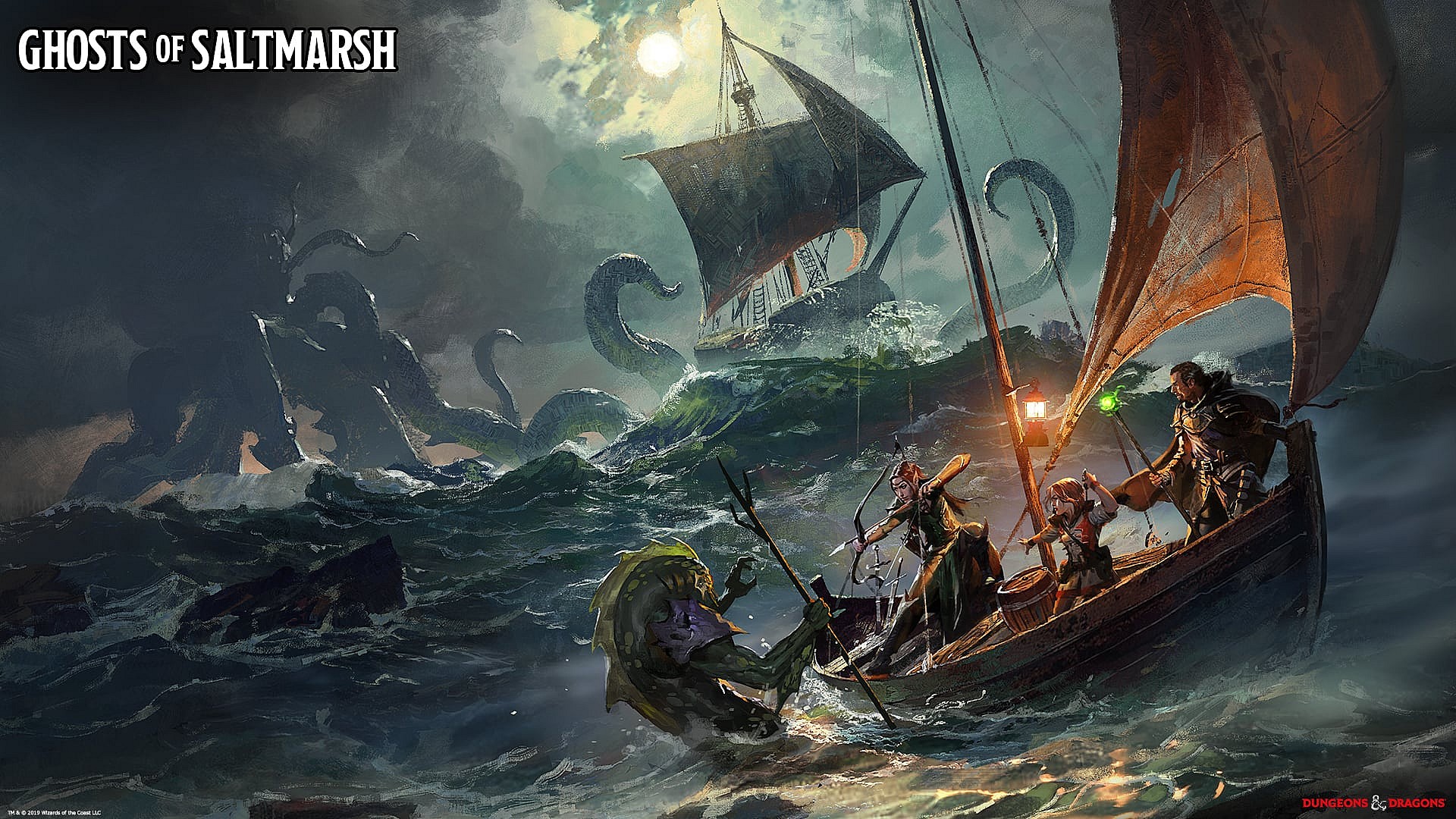
What do you make of Whittle’s argument that D&D promotes race essentialism? Let us know your thoughts on social media or in the comments down below!
